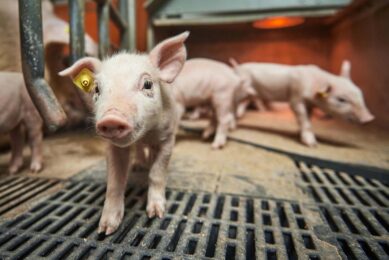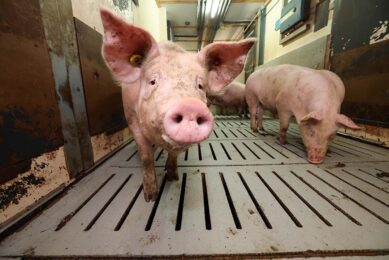EFSA survey on MRSA in pigs in the EU
The European Food Safety Authority (EFSA) has published the first EU-wide survey on MRSA (Methicillin-resistant Staphylococcus aureus) in breeding pigs.
The results indicate that MRSA, a bacterium resistant to many antibiotics, is commonly detected in holdings with breeding pigs in some EU Member States. The survey provides estimates of its occurrence and makes recommendations for further monitoring and investigation of the causes and implications of MRSA findings in pig holdings in the EU.
The survey was carried out in 24 Member States, 17 of which found some type of MRSA in their holdings with breeding pigs and 7 none at all. On average, different types of MRSA were found in 1 out of 4 holdings with breeding pigs across the EU, but the survey also says that figures vary greatly between Member States. MRSA ST398 was the most reported type of MRSA among the holdings with breeding pigs in the EU; some Member States also reported other types, but their prevalence was much lower.
MRSA is a major concern for public health and its various types are recognised as an important cause of hospital-acquired (or nosocomial) infections in humans. The specific type MRSA ST398 has been identified in some domestic animals and is considered an occupational health risk for farmers, veterinarians and their families, who may become exposed to it through direct or indirect contact with these animals.
In an opinion published earlier this year, EFSA’s Biological Hazards (BIOHAZ) Panel assessed the public health significance of MRSA in animals and food and concluded that the MRSA ST398 strain is less likely to contribute to the spread of MRSA in hospitals than other types carried by humans. The Panel also said that there is currently no evidence that MRSA ST398 can be transmitted to humans by eating or handling contaminated food.
In the survey published today, EFSA recommends monitoring of pigs and other food producing animals for MRSA. It also says further research should be carried out, so that the reasons for differences in the prevalence of MRSA in the various Member States can be identified and used to propose options on possible control measures.
Related website
• EFSA
Join 18,000+ subscribers
Subscribe to our newsletter to stay updated about all the need-to-know content in the pigsector, three times a week. Beheer
Beheer










 WP Admin
WP Admin  Bewerk bericht
Bewerk bericht